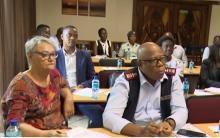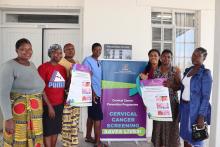Probe launched into Otjiwarongo hospital death
Breadcrumb
The Minister of Health and Social Services, Dr Esperance Luvindao, said investigations are being carried out to uncover the cause of death of a patient who recently passed away at the Otjiwarongo Hospital.













